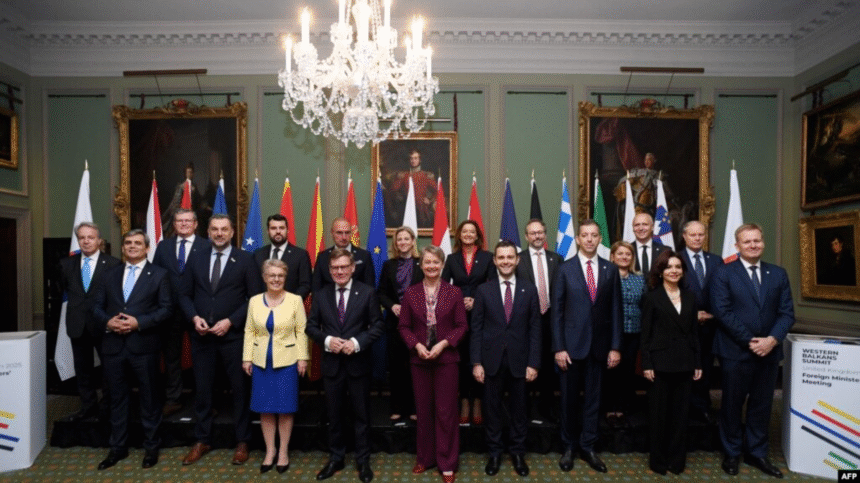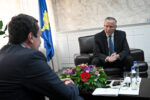During a high-level summit in Northern Ireland, UK Foreign Secretary Yvette Cooper reaffirmed the United Kingdom’s commitment to stability in the Western Balkans.
She welcomed foreign ministers from Kosovo, North Macedonia, Bosnia and Herzegovina, Serbia, Montenegro, and Albania.
Kosovo was represented by acting Minister of Foreign Affairs and Diaspora Donika Gërvalla, while Serbia was represented by Foreign Minister Marko Gjuriq. European allies such as France, Austria, Greece, and Italy also attended the summit.
Speaking at Hillsborough Castle, Cooper described the venue as a symbol of peace, progress, and reconciliation, recalling the historical peace process in Northern Ireland in the late 1990s.
She stressed that the UK maintains a steadfast commitment to security, stability, and prosperity in the Western Balkans, noting:
“We know that security in the Western Balkans impacts security across Europe and here in the United Kingdom.”
Cooper also reflected on significant anniversaries: 30 years since the Dayton Agreement ending the war in Bosnia and three decades since the Belfast Agreement. She emphasized that the Hillsborough gathering serves as a symbol of peace, progress, and reconciliation.
Ahead of the summit, the UK pledged support for:
- Strengthening border security and law enforcement training in Kosovo
- Enhancing cybersecurity defenses against Russian influence
- Funding projects to combat human trafficking across the Western Balkans and other key regions
The Western Balkans remain a critical transit route for migrants traveling to the EU and the UK. Last year alone, nearly 22,000 illegal crossings were recorded, according to the UK Foreign Office.
Since 2014, the Berlin Process has aimed to increase cooperation among the six Western Balkan countries and align them closer with the European Union. The annual summits facilitate agreements, declarations, and collaborative initiatives to promote peace, stability, and regional integration.







